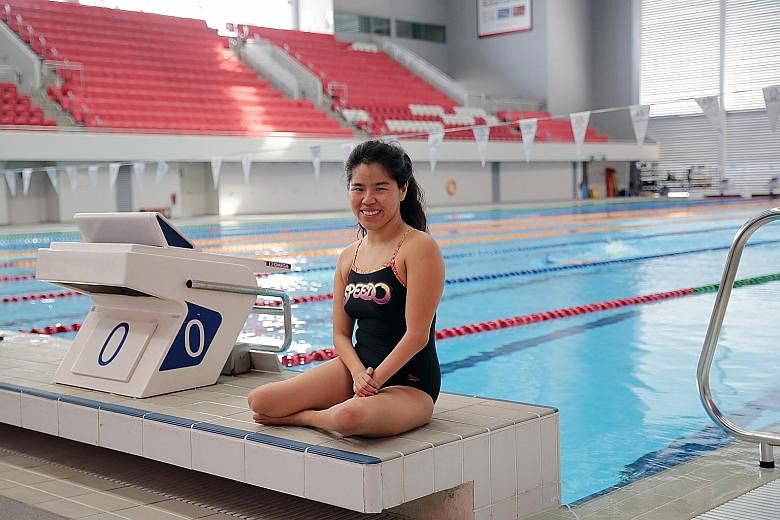Much of the first three years of Ang Kee Meng's time as a national track cyclist was spent overcoming roadblocks like searching for suitable velodromes overseas to train in and finding ways to finance these stints.
Back in 2010, the Singapore Cycling Federation (SCF) did not have a track cycling discipline. This meant Ang, who eventually became the first Singaporean to compete at the International Cycling Union Track Cycling World Cup in 2013, was mostly left to his own devices with little guidance.
These struggles prompted him to join the SCF's executive committee in 2016 as vice-president of track cycling, largely to ensure the right programmes and knowledge were in place for future generations.
"There were a lot of things that could have been more cost-and time-efficient, but I went through the long route and I don't want them to go through that trouble, and the only way for decisions to be made was to become an exco member," Ang, 34, said.
His journey from athlete to administrator is becoming more common in recent years, as more of his peers are taking on leadership roles in the various national sports associations (NSA).
Former national sprinter Gary Yeo, who represented Singapore from 2005 to 2015, is part of Singapore Athletics' new management committee which was elected in September. He was previously the athletes' commission representative but left in March over differences with the previous committee.
The 34-year-old felt there was insufficient transparency when it came to the selection criteria for certain competitions during his time as a national athlete.
He said: "I had a clear vision of what the association should or should not do and I felt that I couldn't influence it from the outside nor as athletes' commission representative. So I decided to come in to help the athletes train to the best of their abilities without worries and with a fair system."
For Roy Tay and George Foo, entering the world of officialdom was an opportunity to help sailing and golf, their respective sports, move forward.
Tay, part of the match-racing team that won the gold medal at the 2006 Asian Games in Doha, wanted to tackle the high attrition rate of sailors who drop out after they finish their studies.
The 37-year-old said: "A lot of it is looking at the structural part of it, looking at how we can keep the pipeline of sailing talent, keep the sailors coming through from the youth and developing classes to the senior classes.
"Sailing is one of the sports that has become known as one that can produce champions, so I'd really like to see how we can keep the medal tally higher and get more people through the system."
Foo, 30, has been a member of the Singapore Golf Association's executive board since 2018.
He spent seven years on the national team and said that experience was helpful when it comes to tackling high-performance issues.
But he acknowledged officials had to balance different perspectives and any decision required consideration of not just athletes but other stakeholders.
One area he looks at is creating a viable pathway and preparing national golfers, who are amateurs, to transition into the professional circuit.
Venturing into sports administration is often done after retiring from the sport but para-swimmer Yip Pin Xiu gamely shoulders both roles. The three-gold Paralympian joined the Singapore Disability Sports Council's (SDSC) executive committee as an individual member in September.
On why she felt it was the right time to do so, the 28-year-old said: "I personally don't see myself retiring in the near future, so the question is, if not now then when? Because if I were to wait until I retire, I really don't know how old I would be, what kind of changes I would like to make, so I think this current opportunity is a good one."
Her work as a Nominated Member of Parliament also taught her more about NSAs and SDSC, and that sparked her interest to join the exco.
Yip, who will be involved in the community and participation portfolios, said: "As an athlete, I didn't know that the SDSC (was) just one NSA handling close to 20 sports and that's a lot to juggle.
"Sport has made a great change in my life positively and I want to see it has a similar impact on others, especially people with disabilities."


